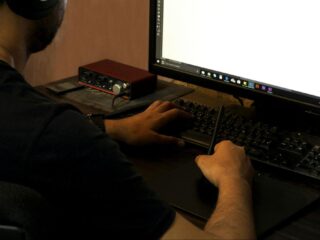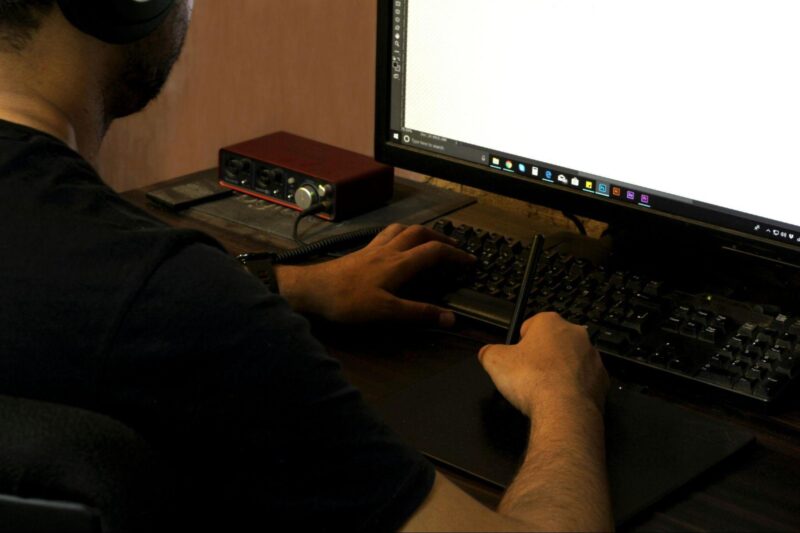
Bad beats in Poker can test a player’s resolve. While they can be disheartening, they’re also an integral aspect of the game that even professionals must contend with. Navigating these difficult moments successfully calls for more than just skill. It needs a certain mindset and calculated decision-making.
Tip 1: Keep a Level Head
One of the first steps in overcoming bad beats is maintaining a balanced emotional state. Emotional reactions can cloud your judgment and lead you to make mistakes in subsequent hands. Instead, focus on the logic and strategy that usually serves you well. This is where mastering the art of emotional intelligence can be particularly beneficial. If you find that your emotions often get the better of you, you may want to consider additional training in this area to help you play Poker more effectively.
Tip 2: Reevaluate Your Strategy
A bad beat might be a sign that you need to adjust your approach. While it’s true that bad beats can happen to anyone, regardless of skill level, frequent bad beats could indicate a flaw in your game plan. Regularly review your plays and think about how you could have approached different situations. Use software tools to analyze your hand histories, and consider consulting more experienced players for advice.
Tip 3: Look at the Bigger Picture
One or two bad beats should not define your poker career. A longer-term perspective will remind you that Poker is a game of skill over the long haul. An unfortunate event is a small bump on the road to becoming a better player. Consider your overall growth and achievements instead of dwelling on singular events that went against you.
Tip 4: Use a Stop-Loss Strategy
Financial markets and Poker have something in common: they both involve risk management. A stop-loss strategy involves setting a limit on how much you’re willing to lose in a single session. If you reach that limit, you stop playing, no matter what. This can be particularly useful after a bad beat, where emotions might otherwise compel you to chase losses.
Tip 5: Take a Break
Sometimes, the best action to take after a bad beat is no action at all. Stepping away from the table for a while can be a good way to reset your mindset. Use this time to relax, clear your head, and return later with a renewed focus. This break can be as short as a few minutes to walk around and get some fresh air or as long as a few days to fully reset.
Tip 6: Manage Your Bankroll Effectively
Smart bankroll management is an often overlooked aspect of recovering from bad beats. If you’re playing at stakes that are too high for your bankroll, a single bad beat can devastate your finances. On the other hand, playing at appropriate stakes can make a bad beat much easier to absorb. Properly managing your bankroll ensures that you can continue to play, improve, and, most importantly, recover from any losses without endangering your overall financial situation.
Tip 7: Learn from Others
Observing how other players handle bad beats can offer you valuable lessons. Try to watch games featuring seasoned players, either in person or via streaming platforms. Note their reactions, game adjustments, and strategies they employ to recover from a bad beat. Gaining insights from the behavior and strategies of skilled players can provide a different perspective and help you better handle similar situations.
Tip 8: Do Not Become Predictable
One of the negative outcomes of experiencing a bad beat is that you might become predictable in your subsequent plays. For example, you might become too cautious, folding the hands you would usually play, or conversely, become too aggressive in an attempt to recover losses. Both approaches make it easier to read for your opponents. Maintaining a balanced playstyle, despite experiencing a bad beat, will make it harder for others to exploit you.

Tip 9: Seek Professional Coaching
If you find that bad beats are a consistent problem and you’re not able to recover effectively, it might be worth seeking the guidance of a professional poker coach. A coach can provide an external, more objective view of your game, helping to pinpoint areas for improvement that you may not have noticed. Coaching sessions can also provide tailored advice and effective coping mechanisms to handle bad beats better.
Conclusion
Bad beats in Poker are an inevitable but surmountable obstacle. The ability to manage emotional responses and continue making rational decisions despite setbacks can set the foundation for long-term success in Poker and significantly increase your odds of turning a profit over time.













